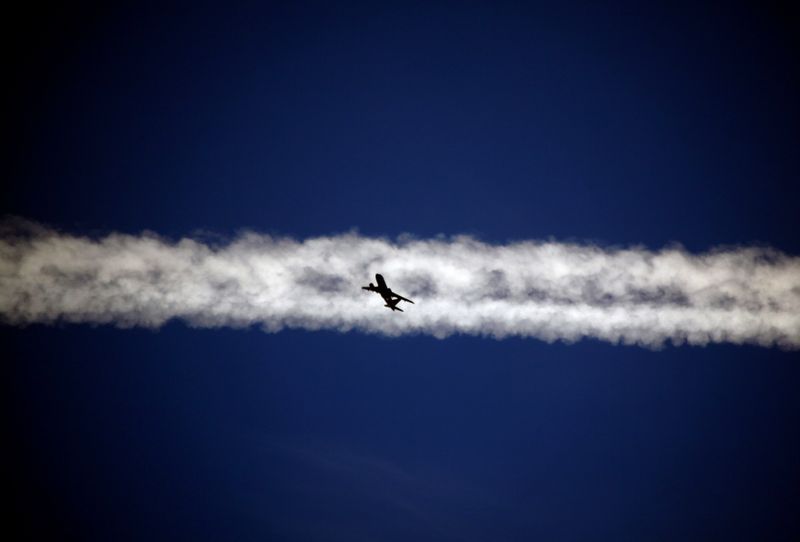By Kate Abnett
BRUSSELS (Reuters) – The European Commission has drafted plans to set an EU-wide minimum tax rate for polluting aviation fuels, as it seeks to meet more ambitious targets to fight climate change, a document seen by Reuters shows.
The European Commission is drafting an overhaul of EU energy taxation, as part of a package of measures it will propose on July 14, to meet a target to reduce EU greenhouse gas emissions by 55% by 2030, from 1990 levels.
A draft of the Commission’s tax proposal takes aim at aviation, which escapes EU fuel taxes.
That exemption “is not coherent with the present climate challenges and policies,” the document said, adding that EU tax rules promote fossil fuels over green energy sources and need rewriting to support the bloc’s climate goals.
The proposal would impose an EU-wide minimum level of tax on energy products supplied as aircraft fuel for flights within the EU.
From 2023, the minimum tax rate for aviation fuel would start at zero and increase gradually over a 10-year period, until the full rate is imposed. The draft proposal did not specify what the final rate would be.
Sustainable fuels, including renewable hydrogen and advanced biofuels, would not face minimum EU taxes during that 10-year period.
The Commission declined to comment on the draft proposal, which could change before publication.
POLITICALLY DIFFICULT?
Introducing the proposals could be politically difficult. Changes to EU tax rates require unanimous approval from the 27 EU countries, meaning a single state could veto them.
EU countries are responsible for setting national taxes, although Brussels can set bloc-wide minimum rates.
The levies would be based on a fuel’s energy content and environmental performance, meaning polluting fuels would become pricier.
The aim is to encourage airlines to start switching to sustainable fuels, such as e-kerosene, to curb greenhouse gas emissions. Uptake of such fuels has been hampered by high costs, and they make up less than 1% of Europe’s jet fuel consumption.
Brussels is also expected next month to propose requirements for airlines to use a minimum share of sustainable fuels, to stir demand for them.
The minimum EU tax rate would not apply to cargo-only flights or to “pleasure flights” and “business aviation”. That could include recreational use of an aircraft or a company using a plane, not for public hire, to conduct its business. Member states could choose to tax those flights’ fuel on a national basis.
The draft proposal would also introduce minimum tax rates on polluting fuels used for waterborne navigation, fishing and freight transport within the EU.


